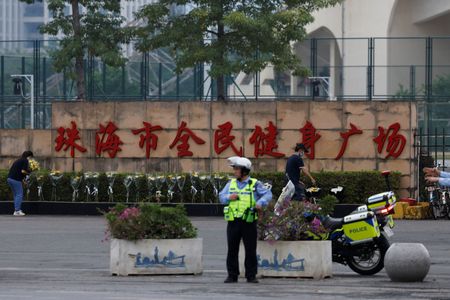TOKYO (Reuters) – Japan is set to nominate several mines for consideration as world heritage sites by UNESCO, its prime minister said on Friday, despite protests from South Korea that the move is inappropriate as forced labourers were used there in World War Two.
Japan’s cultural affairs agency selected the gold and silver mines on the island of Sado as candidates for listing by the United Nations cultural organisation in December, citing the development of traditional handcraft techniques. The site was also the world’s top producer of gold in the 17th century, according to the agency.
Adding to already fraught bilateral relations, South Korea’s foreign ministry protested the move, saying Korean labourers were forced to work there during Japan’s 1910-1945 colonisation of the Korean peninsula, including during World War Two.
Kishida said the decision to nominate the mines, which will be formalised at a cabinet meeting on Feb 1, was made as what seemed like the “shortest route” to getting the sites listed.
“To start debate earlier means we can reach an agreement sooner,” he told reporters, saying the sites were “really wonderful”.
He added that he didn’t want to make predictions about a final decision, and he acknowledged South Korea’s reaction.
“We’re aware that South Korea has its own opinions. So that’s why we feel we should have meaningful, rational debate and dialogue,” he added.
Kishida, who faces an election for the upper house of parliament in July, had reportedly been under pressure from conservative lawmakers to press ahead with the nomination, but he denied he had been cajoled into the move.
A spokesperson for South Korea’s ministry of foreign affairs expressed “strong regret” that the Japanese government decided to promote the registration of the Sado Mine despite repeated warnings from the Korean side.
“We strongly urge you to stop these attempts,” the spokesperson said in a statement.
The Asian neighbours have long been at loggerheads over a series of political and economic issues stemming from Japan’s colonisation of the Korean peninsula.
A recent flashpoint has been the issue of wartime forced labour, with bilateral relations falling to their lowest ebb in recent years as the row, highlighted by several South Korean court rulings, spilled into a trade dispute and rekindled historical and territorial spats.
(Reporting by Satoshi Sugiyama and Elaine Lies in TOKYO, additional reporting by Josh Smith in SEOUL; Editing by Hugh Lawson)











